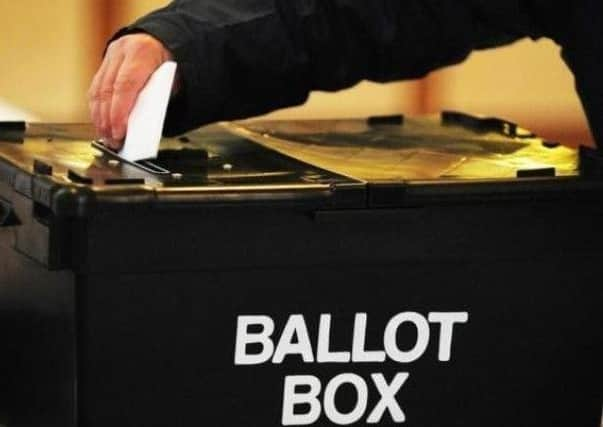Analysis: No ignoring the politics in Yorkshire devolution plan


In brief, it suggests a single elected mayor for the whole region working with combined authorites representing - respectively - West, South and North/East Yorkshire.
Although still not well understood by the public, combined authorities already exist in South and West Yorkshire bringing councils together to work on big cross-border issues like transport and economic development.
Advertisement
Hide AdAdvertisement
Hide AdAnd here’s the crucial bit - the Yorkshire devolution plan largely leaves them alone.
That aims to address a key concern of supporters of ‘city region’ devolution - handing powers to clusters of authorities around big cities - that while Yorkshire shares a common identity, economically it is diverse. How could you write a single plan for skills, for example, that works as well for Halifax as it does Richmond, they argue?
It also means South Yorkshire’s existing draft deal could be included without a wholesale re-write.
But maintaining the existing combined authorities and creating a new one covering Hull, East Riding and North Yorkshire also addresses a major political concern.
Advertisement
Hide AdAdvertisement
Hide AdFor all the principled discussions about how Yorkshire should take more control over its own affairs, progress has also been stymied by political considerations. Every proposal has been scrutinised for which area it would cover and what that would likely mean for each party’s chance of winning the ensuing mayoral race?
By retaining significant powers at combined authority level, suddenly who wins the mayoral race becomes far less important. In all likelihood Labour would retain control in South and West Yorkshire, the Conservatives would control the new North/East CA.
Putting a Yorkshire mayor on top satisfies the Government’s insistence that devolution must involve an elected mayor but in a way that doesn’t threaten existing political interests.
Major questions remain.
The Government has always insisted on mayors as part of devolution deals to ensure the public can hold an individual to account for the powers it is handing over. Will ministers be convinced the mayor in this system will be accountable?
Advertisement
Hide AdAdvertisement
Hide AdThe proposal would require some legal changes. With Brexit looming, are ministers willing to devote civil service time to making this solution possible?
Can council leaders concerned that a Yorkshire mayor, whatever it says on paper, will be a powerful figure simply by virtue of their mandate have their worries allayed?
Conversely, can those hoping for a powerful figure to drive through change be convinced the Yorkshire mayor would be more than an ambassador for the region?
Will Yorkshire’s business community have faith that such a system can be agile enough to meet its needs?
Advertisement
Hide AdAdvertisement
Hide AdIn an era of antipathy to politics will the public relate to an unfamiliar system of mayor and combined authorities?
But most importantly of all, can those who object to this proposal present any other realistic way of ending the devolution stalemate that threatens to put Yorkshire in the economic slow lane?